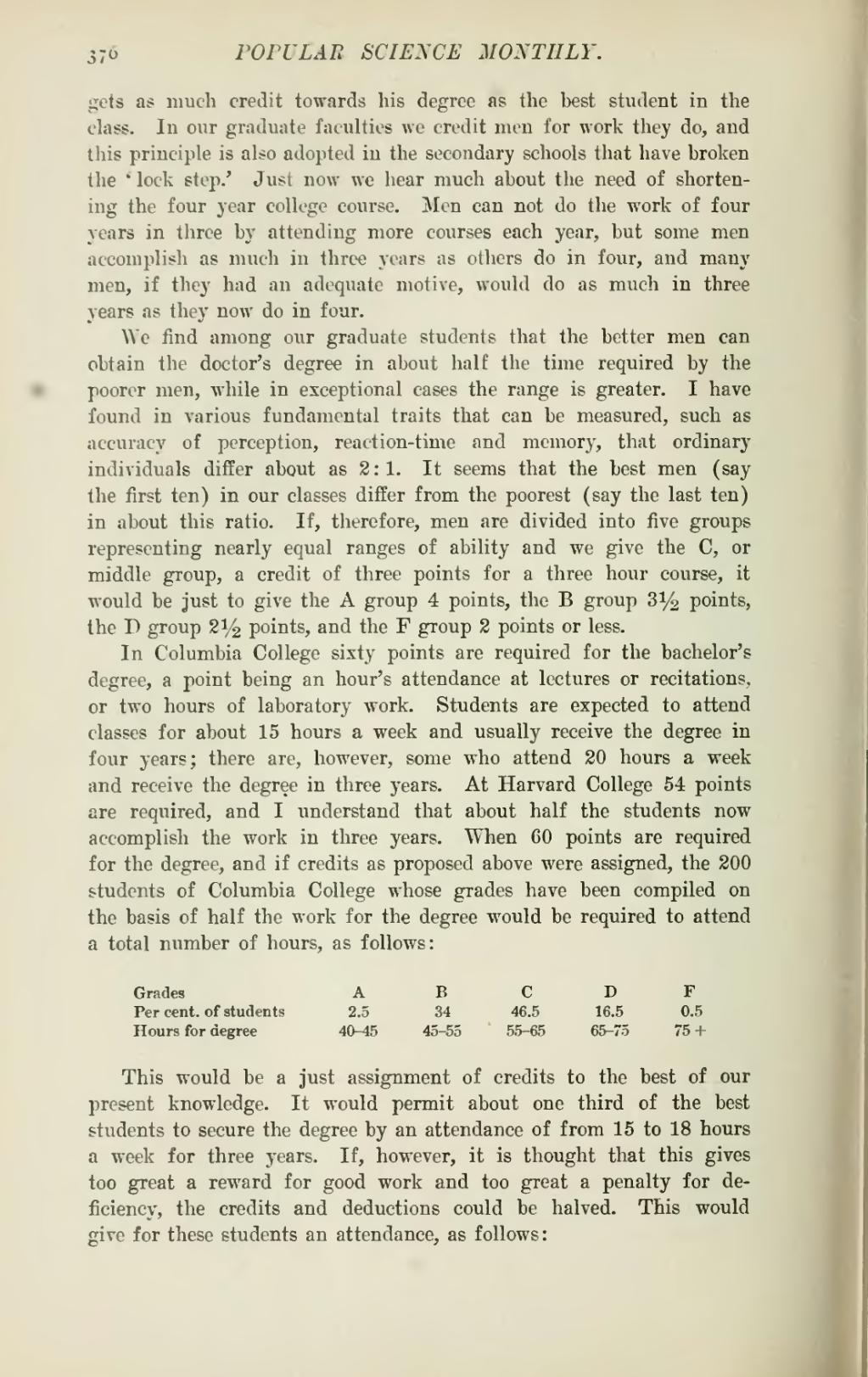gets as much credit towards his degree as the best student in the class. In our graduate faculties we credit men for work they do, and this principle is also adopted in the secondary schools that have broken the 'lock step.' Just now we hear much about the need of shortening the four year college course. Men can not do the work of four years in three by attending more courses each year, but some men accomplish as much in three years as others do in four, and many men, if they had an adequate motive, would do as much in three years as they now do in four.
We find among our graduate students that the better men can obtain the doctor's degree in about half the time required by the poorer men, while in exceptional cases the range is greater. I have found in various fundamental traits that can be measured, such as accuracy of perception, reaction-time and memory, that ordinary individuals differ about as 2:1. It seems that the best men (say the first ten) in our classes differ from the poorest (say the last ten) in about this ratio. If, therefore, men are divided into five groups representing nearly equal ranges of ability and we give the C, or middle group, a credit of three points for a three hour course, it would be just to give the A group 4 points, the B group 31⁄2 points, the D group 21⁄2 points, and the F group 2 points or less.
In Columbia College sixty points are required for the bachelor's degree, a point being an hour's attendance at lectures or recitations, or two hours of laboratory work. Students are expected to attend classes for about 15 hours a week and usually receive the degree in four years; there are, however, some who attend 20 hours a week and receive the degree in three years. At Harvard College 54 points are required, and I understand that about half the students now accomplish the work in three years. When 60 points are required for the degree, and if credits as proposed above were assigned, the 200 students of Columbia College whose grades have been compiled on the basis of half the work for the degree would be required to attend a total number of hours, as follows:
| Grades | A | B | C | D | F |
| Per cent, of students | 2.5 | 34 | 46.5 | 16.5 | 0.5 |
| Hours for degree | 40-45 | 45-55 | 55-65 | 65-75 | 75+ |
This would be a just assignment of credits to the best of our present knowledge. It would permit about one third of the best students to secure the degree by an attendance of from 15 to 18 hours a week for three years. If, however, it is thought that this gives too great a reward for good work and too great a penalty for deficiency, the credits and deductions could be halved. This would give for these students an attendance, as follows:
